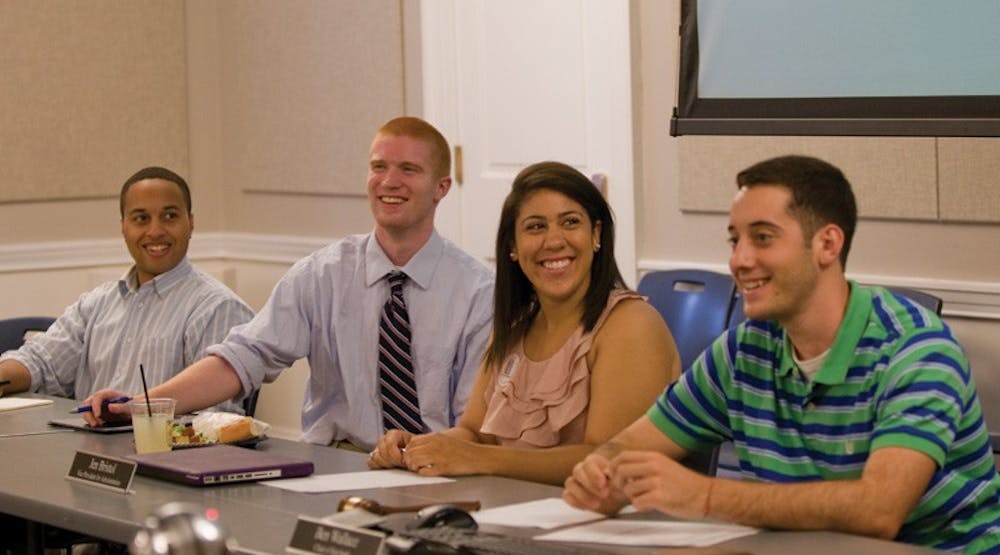Student Council's Academic Affairs Committee is looking to sponsor another round of Cavalier Education courses this spring and is now accepting applications for students looking to lead a class.\nCommittee Co-Chair Tatiana Matthews said the program - which was previously known as student-initiated courses - allows student-instructors to teach subjects that interest them. Courses offered in the past have covered a wide array of subjects, such as "The West Wing" television show and how it relates to politics.
"It was an idea that came to allow students a little more freedom as to what they can take and to extend student self-governance in the academic realm in different way," Matthews said.
CavEd courses are modeled after similar programs that have sprung up in California and at universities such as Tufts and Carnegie Mellon. Such programs seek to offer courses that are not already present in the general curriculum.
"The philosophy is that learning doesn't have to be confined to specific classrooms or hierarchies," Matthews said. "If there's something you want to learn about that's not in the curriculum, there are ways to make that happen."
Matthews said they hope to offer five to eight classes in the spring.
"Students enrolled in CavEd courses receive one to three credits, depending on the course," Matthews said. "The student instructor decides how many."
Student-teachers can also receive credit for their classes.
"Students get credit if they're teaching as an independent study," Matthews said. "Otherwise it's for the glory and the experience of transmitting something you're really passionate about to other students."
Fourth-year College student Casey Brown taught a research and psychology CavEd course last spring because she thought it would be an efficient way to educate students about ways to get involved in research.
"I realized that there wasn't a good way to learn about the different ways to do research on websites," Brown said. "It's better for students to hear straight from professors who run the labs."
Fourth-year Commerce student James Rogers co-taught a class on the anatomy of a financial crisis with University alumnus Rahul Gorawara.
"I was actually in a class - the same one - taught by other people my second year a couple months after the financial crisis had occurred," Rogers said. "It was a really good service and personal experience to teach."
Rogers noted, however, that student teaching is a big time commitment. In addition to the two hours of class every week, much time was spent in preparation for each class, Rogers said, especially in terms of reading and discussing what topics to cover with his co-teacher.
"It required about six to eight hours a week just to get ready for class," he said.
Although he conducted much of the teaching, Rogers said the program was a learning experience for him as well. Such a program, he said, would be especially valuable for students interested in futures in academia.
"You don't really understand a topic until you actually teach it to someone," Rogers said. "I think it's a great program overall. As far as I know, no other schools have a program similar to this."
All CavEd courses will be available on the Student Information System under the INST 1556 mnemonic, and course proposals and applications are due Oct. 18.







